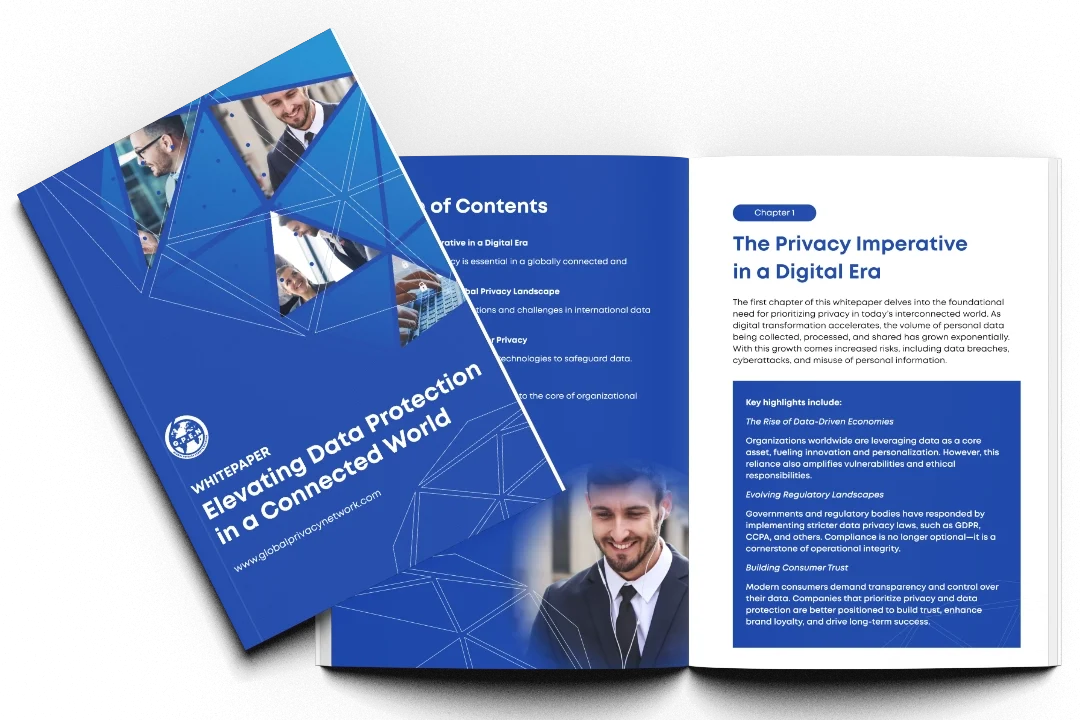Vietnam’s Data Protection Landscape: The Draft PDPL
The Draft Personal Data Protection Law (PDPL)
Vietnam’s data protection landscape is undergoing a significant transformation with the introduction of the Draft Personal Data Protection Law (PDPL). Currently, the country relies on various regulations and general principles related to data privacy. However, with the growing importance of data protection globally, Vietnam is working to consolidate these efforts into a comprehensive national law.
The PDPL is designed to provide a legal framework that will guide businesses on the collection, processing, and storage of personal data. The law’s primary goal is to protect citizens’ privacy while balancing the need for digital transformation and business growth. It outlines key concepts, such as data subject rights, data controller obligations, and penalties for non-compliance.
As Vietnam’s PDPL is in draft form, businesses need to keep a close eye on its final version. The law is expected to come into effect in 2026, but preparations should begin now to ensure compliance. The draft law outlines stringent requirements for obtaining consent, processing sensitive personal data, and the cross-border transfer of data. Understanding these nuances will be critical for businesses operating in or with Vietnam.
Key Challenges for Businesses in Vietnam
While the PDPL aims to standardize data protection regulations in Vietnam, businesses may face several challenges in compliance. These include:
- Data Localization Requirements: Vietnam’s proposed law includes a strong emphasis on data localization, which may require businesses to store personal data within the country. This could be burdensome for multinational organizations that rely on global data infrastructure.
- Cross-Border Data Transfers: The law also includes restrictions on transferring data outside of Vietnam, a topic that has been widely discussed in global data privacy legislation. Vietnam’s approach to cross-border transfers could impact how international businesses manage their data flows.
Companies must work closely with local legal experts to understand the implications of these provisions and implement strategies to mitigate compliance risks.
Malaysia: PDPA and Data Privacy Compliance
The Personal Data Protection Act (PDPA)
Malaysia’s Personal Data Protection Act (PDPA), enacted in 2010, remains one of the region’s more robust data privacy laws. The PDPA regulates the processing of personal data in commercial transactions, making it one of the foundational legal documents for businesses operating in Malaysia.
The PDPA covers a wide range of data privacy principles, including the rights of data subjects, the duties of data users, and the roles of data processors. It mandates that organizations must obtain explicit consent before processing personal data, and provides individuals with the right to access, correct, and delete their personal data.
For businesses in Malaysia, compliance with the PDPA is critical to avoid penalties and legal action. Companies must implement strict data handling practices and security measures to protect personal data. Additionally, there are provisions in the PDPA related to the appointment of a Data Protection Officer (DPO) to ensure adherence to the law.
Key Aspects of Malaysia’s PDPA
- Consent and Transparency: Under the PDPA, businesses must obtain clear and explicit consent from individuals before processing their data. This extends to data sharing with third parties. Transparency about how personal data is collected, used, and shared is a critical requirement.
- Data Breach Notification: The PDPA mandates that businesses notify authorities and affected individuals within a specific time frame if a data breach occurs. Timely reporting and transparent communication are essential for minimizing reputational damage and maintaining trust with customers.
Malaysia’s data protection regulations are regularly updated to align with global standards. With growing concerns about data privacy in Southeast Asia, businesses must stay updated on any amendments to the PDPA and adjust their practices accordingly.
Indonesia’s Personal Data Protection Law (PDP Law)
Overview of Indonesia’s PDP Law
Indonesia’s Personal Data Protection Law (PDP Law), which came into effect in 2020, is a comprehensive piece of legislation aimed at improving data protection in the country. The PDP Law sets clear guidelines for the processing, storage, and transfer of personal data. The law applies to both private and public sectors and covers personal data in all forms, whether digital or paper-based.
The PDP Law introduces a broad range of new obligations for organizations. These include the requirement for explicit consent from data subjects, restrictions on data processing for specific purposes, and provisions on data subject rights. Organizations must appoint Data Protection Officers (DPOs) to oversee compliance with the law.
Indonesia’s approach to data privacy has been influenced by the European Union’s General Data Protection Regulation (GDPR), making it one of the most forward-thinking data protection laws in Southeast Asia.
Compliance Challenges for Businesses in Indonesia
- Data Protection Officer Requirements: The PDP Law mandates the appointment of a DPO in certain organizations. Businesses must ensure that their DPOs are well-versed in the intricacies of the PDP Law and are equipped to handle data protection challenges.
- Cross-Border Data Transfers: The law places restrictions on the transfer of personal data outside Indonesia. Organizations that deal with international clients or have global operations may need to establish data centers within Indonesia to comply with these regulations.
- Sanctions and Penalties: The PDP Law imposes significant penalties for non-compliance, including fines and potential criminal charges. Businesses must take proactive steps to avoid breaches and ensure data protection practices are in line with legal requirements.
Building a Data Protection Strategy for Southeast Asia
As Southeast Asia continues to embrace the digital age, businesses must navigate the complexities of data protection regulations across various jurisdictions. In Vietnam, Malaysia, and Indonesia, data protection laws such as the PDPA, PDPL, and PDP Law are becoming increasingly stringent, and non-compliance could result in severe penalties and reputational damage.
To build a solid data protection strategy in Southeast Asia, businesses should:
- Understand Local Legislation: Stay informed about the latest updates and changes to data protection laws in the region. Understanding the nuances of each country’s legal framework is crucial for avoiding compliance pitfalls.
- Implement Robust Data Protection Policies: Develop clear data protection policies that align with local regulations. This includes obtaining explicit consent, implementing strict data security measures, and preparing for potential data breaches.
- Train Employees: Ensure employees are trained on data protection regulations and best practices. A culture of data privacy should be ingrained in the organization from top to bottom.
- Monitor Compliance: Continuously monitor compliance with data protection laws to ensure that your business adapts to any legal changes or emerging threats.


